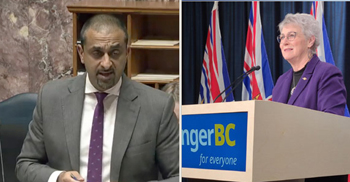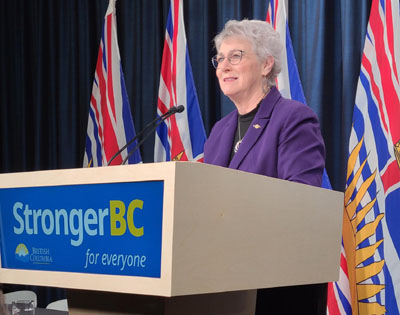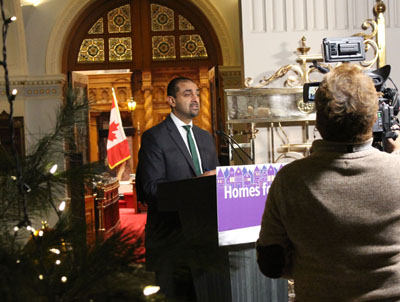
Monday December 4, 2023 | VICTORIA, BC [Updated December 5, 2023]
by Mary P Brooke | Island Social Trends
People who rent their home-space in BC will see a BC Renter’s Tax Credit when they file their 2023 tax return.
The BC government is putting up to $400 a year back in people’s pockets with a new Renter’s Tax Credit.

“This benefit will help people with low and moderate incomes, including people who receive income and disability assistance, and rental supplement programs,” as stated by the Finance Ministry in a statement to Island Social Trends last week.
That includes people receiving support through RAP and SAFER programs through BC Housing.
One-third of people in BC rent their homes. “We expect 80% of renting households will get the benefit starting in 2024 after they file income taxes,” said Minister Conroy’s office last week.
New for 2024:
Budget 2023 introduced an annual income-tested renter’s tax credit that will give $400 to low- and moderate-income renter individuals and families with an adjusted income of $60,000 or less.
Individuals and families with an adjusted income greater than $60,000 and less than $80,000 may receive a reduced amount.
Who qualifies:
A ‘household’ generally refers to an individual and their cohabiting spouse or common law partner.
People who share accommodations are not considered a family for tax purposes and each can receive the tax credit if they meet all criteria and have rental agreements in place for six or more months in a calendar year, says the Finance Ministry.
A full list of eligibility criteria can be found on the BC Government Renters Tax Credit website.
Where renters might go:
Last week during her Second Quarterly Report media availability, Finance Minister Katrine Conroy said she felt there will be somewhat less of a rental crisis as the speculation tax and short-term rental legislation begins to free up more houses, townhomes and condos to rent.

It’s yet to be seen whether that comes in time for people who are being forced to leave rented units due to rent increases or property owners selling the units and the next owner not retaining tenants.
A number of individuals and families — particularly seniors — might fall between the cracks and be temporarily homeless.
Residential Tenancy Board approach: more staff, more dollars, more process:
Last week BC Housing Minister Ravi Kahlon told Island Social Trends that renters will be further supported with an announcement “in the coming weeks”.
The ministry says the announcement will be about “service improvements that will ultimately support renters and landlords across the province”.
The effort seems to rely heavily on adding more staff to the existing system and facilitating settlement processes with a focus on “a more customer service-oriented process”. Here is the Ministry’s statement to Island Social Trends on December 1, 2023:
- The Province is committed to continue to provide supports and protections for renters and landlords in B.C. The announcement in the coming weeks will be about service improvements that will ultimately support renters and landlords across the province.
- Building on our investment of $15.6 million announced in December 2022 to make sure serious disputes between landlords and tenants can be resolved faster, the Residential Tenancy Branch (RTB) has completed some much-needed improvements to the dispute resolution process and has created 50 new positions at the RTB. These improvements aim to streamline processes, improve service delivery, and ensure the timely resolution of disputes.
- To further improve RTB services, amendments to the Residential Tenancy Act were recently passed that will enable a spectrum of RTB dispute resolution services, such as facilitated settlement processes. The goal is to have a more customer service-oriented process to make it easier, quicker, and more effective for everyone.
- The amendments will also give the RTB more flexibility in how it conducts hearings, ultimately reducing hearing wait times.




